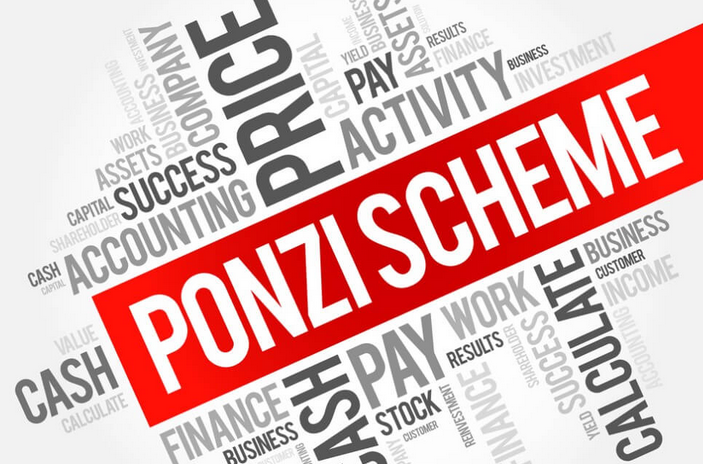Ponzi schemes in the Forex market usually begin with an investment firm promising extraordinarily high returns using skilled traders, proprietary high-speed trading algorithms, and inside information. In reality, these firms don’t execute any trades.
Instead of paying existing investors their returns, they rely on new investors’ money to create a façade of profitability. These companies often provide inflated trading statements, phony account balances, and false promises of easy withdrawals to maintain the illusion of profitability.

After a time when new investors slow down, the fraudsters cannot pay off earlier investors. As a result, the scheme collapses, and the scammers run off with the remaining funds.
How to Identify Forex Ponzi Schemes?
To spot a forex Ponzi scheme, you should be vigilant and knowledgeable. Here are some tell-tale signs:
1. Low-risk, high-return investments
There is a common sign of a Ponzi scheme when it assures high returns with minimal or no risk. Remember, forex trading is risky, and no one can guarantee profits. The phrase, “If it sounds too good to be true, it probably is,” applies to this scheme.
2. Overly Complex Strategies
Many forex scams use complex jargon or trading strategies to deceive potential investors. It could be a red flag if you don’t understand how the company makes money. A legitimate company should have no problem explaining its trading strategies in layperson’s terms.
3. Lack of Transparency
Any investment requires transparency. Be cautious of firms that refuse to provide necessary documents, such as audited financial reports. The Commodity Futures Trading Commission (CFTC) in the U.S. and the Financial Conduct Authority (FCA) in the U.K. are competent authorities to register a legitimate forex trading firm.

4. Difficulties in Withdrawing Funds
Legitimate firms have clearly defined withdrawal procedures and adhere to them. If a firm repeatedly delays your withdrawal requests or creates obstacles blocking your access to your funds, this may be a warning sign of a Ponzi scheme.
5. Pressure to Invest
You should also be suspicious of companies that use high-pressure sales tactics. Legitimate companies provide you with time to think over your investment.
The Role of Brokers in Forex Trading Ponzi Schemes
Individual and institutional traders can participate in the forex market through forex brokers, which provide a platform for trading. Unscrupulous brokers might facilitate Ponzi schemes knowingly or unknowingly. They may promote deceptive forex investment opportunities that promise high returns without risk.
Identifying potentially dangerous brokers is as easy as this:
1. Unregistered Brokers
The presence of a license from a recognized regulatory authority is a significant sign of a reputable forex broker. These authorities oversee financial firms to protect consumers, so it’s a major red flag if a broker isn’t licensed.
2. Promising High Returns with No Risk
In the same way as Ponzi schemes, Forex brokers making claims of high returns with no risk are suspicious. The forex market is, by its nature, volatile and risky. Legitimate brokers wouldn’t make such claims.
3. Lack of Transparency
Authentic brokers provide transparency about their operations, fees, and risks. If they are reluctant to provide this information or are evasive, it’s a warning sign.
4. Unusual Withdrawal Procedures
Reputable brokers should make the withdrawal process as straightforward as possible. It could be a red flag if a broker’s withdrawal procedures are complicated or delay withdrawals without a valid reason.
Conclusion
Forex trading offers considerable opportunities but can harbor illegal activities like Ponzi schemes. To avoid these fraudulent practices and their severe financial, legal, and psychological consequences, we must understand their fundamental characteristics.
To avoid Forex Ponzi schemes and deceptive brokers that facilitate them, prospective investors should be aware of the red flags that they might present. Among the signs of potential foul play are promises of high returns without risk, lack of transparency, convoluted withdrawal procedures, and high-pressure tactics.


